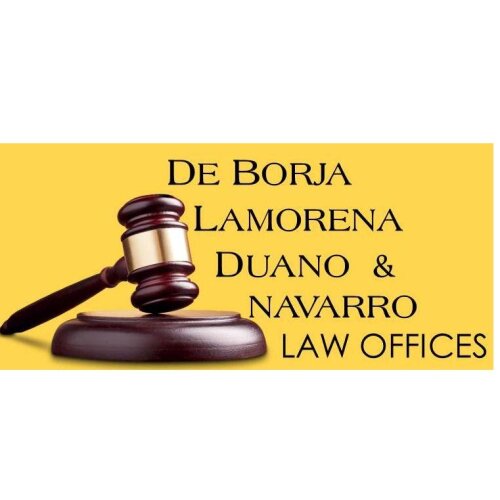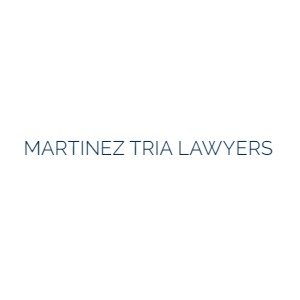Best Antitrust Litigation Lawyers in Manila
Share your needs with us, get contacted by law firms.
Free. Takes 2 min.
List of the best lawyers in Manila, Philippines
About Antitrust Litigation Law in Manila, Philippines
Antitrust litigation in Manila, Philippines refers to legal proceedings that address violations of competition laws. These laws are designed to promote fair competition and prevent monopolistic practices, price-fixing, cartel arrangements, and abuses of dominant market positions. Manila, as the economic center of the Philippines, is home to many major businesses and industries. As such, antitrust litigation frequently arises where practices may adversely affect competition, consumers, or other businesses. The Philippine Competition Commission (PCC) is the primary agency responsible for enforcing antitrust laws, investigating alleged violations, and initiating legal actions when necessary.
Why You May Need a Lawyer
Antitrust litigation involves complex legal and economic issues that can significantly impact businesses, consumers, and the market. Below are common situations where legal advice is crucial:
- Your business is accused of violating competition laws, such as cartel behavior, price-fixing, or abuse of dominance.
- You suspect a competitor is engaging in unfair competition or anticompetitive conduct.
- You are involved in a merger, joint venture, or acquisition that may have antitrust implications.
- You have received a summons, subpoena, or inquiry from the Philippine Competition Commission.
- You need to respond to an investigation or enforcement action regarding alleged antitrust violations.
- You want to conduct an internal compliance review or audit of your business operations to ensure compliance with competition laws.
- You wish to file a complaint regarding unfair or anticompetitive business practices affecting your business or industry.
Local Laws Overview
The main law governing antitrust matters in Manila and the rest of the Philippines is the Philippine Competition Act (Republic Act No. 10667). This comprehensive law prohibits anticompetitive agreements, abuse of dominant position, and anticompetitive mergers or acquisitions. The Philippine Competition Commission serves as the regulatory and enforcement body. Key prohibitions include:
- Anti-competitive agreements, such as cartels, price-fixing, bid rigging, and market allocation.
- Abuse of dominant position, including predatory pricing, refusal to deal, and imposing unfair purchase or selling prices.
- Mergers and acquisitions that substantially lessen competition in the relevant market.
The law provides for administrative, civil, and criminal penalties, and allows for private actions by parties harmed by violations. It applies to all entities engaged in trade or commerce in the Philippines, including those operating in Manila.
Frequently Asked Questions
What is considered an antitrust violation in Manila?
An antitrust violation involves conduct that unlawfully restricts competition, such as price-fixing, bid rigging, division of markets, or abusing a market-dominant position. Actions that reduce competition or harm consumers may be subject to investigation and penalties.
Who enforces antitrust laws in the Philippines?
The primary enforcement agency is the Philippine Competition Commission, which has authority to investigate, file charges, and impose penalties for violations of the Philippine Competition Act. Other courts and relevant agencies may also play roles in enforcement.
What happens if my business is investigated by the PCC?
The PCC may conduct fact-finding, require document submission, and call for hearings. If a violation is found, your business may face fines, orders to cease certain activities, and in severe cases, criminal liability for responsible parties.
Can individuals file antitrust lawsuits in Manila?
Yes, individuals and businesses harmed by antitrust violations have the right to file private actions for damages, injunctions, or other relief in courts of competent jurisdiction.
Are all mergers reviewed for antitrust issues?
Mergers and acquisitions that meet certain thresholds, primarily based on transaction value and industry, must be notified to and reviewed by the PCC before being finalized to ensure they do not substantially lessen competition.
What are possible penalties for antitrust violations?
Penalties can include substantial fines, imprisonment for individuals responsible, and reputational risk. The amount depends on the gravity and duration of the violation, as well as any aggravating or mitigating factors.
How can my business comply with antitrust laws?
You should regularly conduct compliance audits, train employees on competition law, avoid prohibited agreements, and seek legal advice before entering into high-risk transactions or agreements.
Can a foreign company be sued for antitrust violations in Manila?
Yes, if the conduct has effects on Philippine commerce or markets, foreign companies may be investigated and held liable under the Philippine Competition Act.
What is cartel behavior?
Cartel behavior involves companies colluding to fix prices, rig bids, limit production, or divide markets. Such conduct is strictly illegal and subject to heavy penalties.
How long do antitrust cases usually take in Manila?
Case duration varies depending on complexity, evidence, and procedural matters. Investigations can last several months, and formal litigation or judicial proceedings may extend for years.
Additional Resources
Several organizations and institutions offer valuable information and support regarding antitrust litigation in Manila:
- Philippine Competition Commission (PCC) - The main agency handling complaints, investigations, and enforcement.
- Department of Justice - Office for Competition - Assists in the prosecution of criminal antitrust cases.
- Integrated Bar of the Philippines - Provides access to a roster of lawyers and legal aid services.
- Local law firms and legal clinics with expertise in competition law.
- University legal aid centers and business chambers offering seminars on compliance and fair trade practices.
Next Steps
If you believe you are involved in or affected by an antitrust issue, consider the following actions:
- Consult with a qualified lawyer who specializes in antitrust or competition law in Manila to assess your situation and possible remedies.
- Gather and organize relevant documents, contracts, and correspondence related to the potential violation.
- Contact the Philippine Competition Commission or legal aid resources for guidance on filing complaints or responding to investigations.
- Participate in workshops or seminars on competition law to stay informed and ensure your business remains compliant.
- Take prompt action, as some violations and claims are subject to deadlines under Philippine law.
Engaging legal counsel early increases your chances of resolving issues favorably and avoids further legal or regulatory complications in antitrust litigation matters in Manila, Philippines.
Lawzana helps you find the best lawyers and law firms in Manila through a curated and pre-screened list of qualified legal professionals. Our platform offers rankings and detailed profiles of attorneys and law firms, allowing you to compare based on practice areas, including Antitrust Litigation, experience, and client feedback.
Each profile includes a description of the firm's areas of practice, client reviews, team members and partners, year of establishment, spoken languages, office locations, contact information, social media presence, and any published articles or resources. Most firms on our platform speak English and are experienced in both local and international legal matters.
Get a quote from top-rated law firms in Manila, Philippines — quickly, securely, and without unnecessary hassle.
Disclaimer:
The information provided on this page is for general informational purposes only and does not constitute legal advice. While we strive to ensure the accuracy and relevance of the content, legal information may change over time, and interpretations of the law can vary. You should always consult with a qualified legal professional for advice specific to your situation.
We disclaim all liability for actions taken or not taken based on the content of this page. If you believe any information is incorrect or outdated, please contact us, and we will review and update it where appropriate.

















